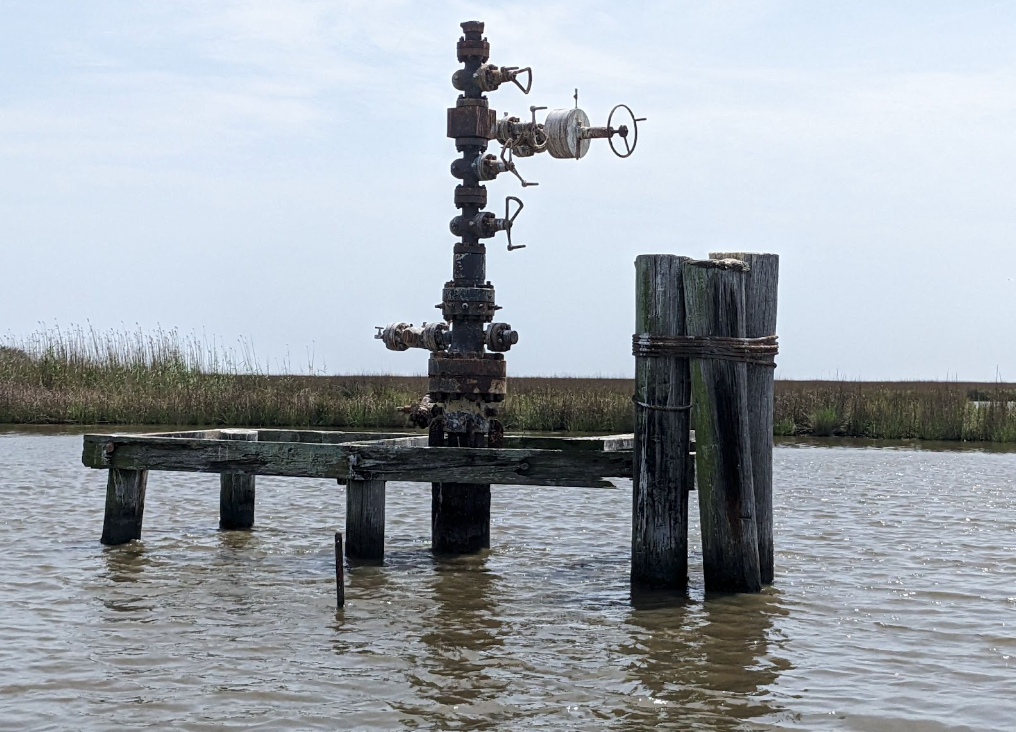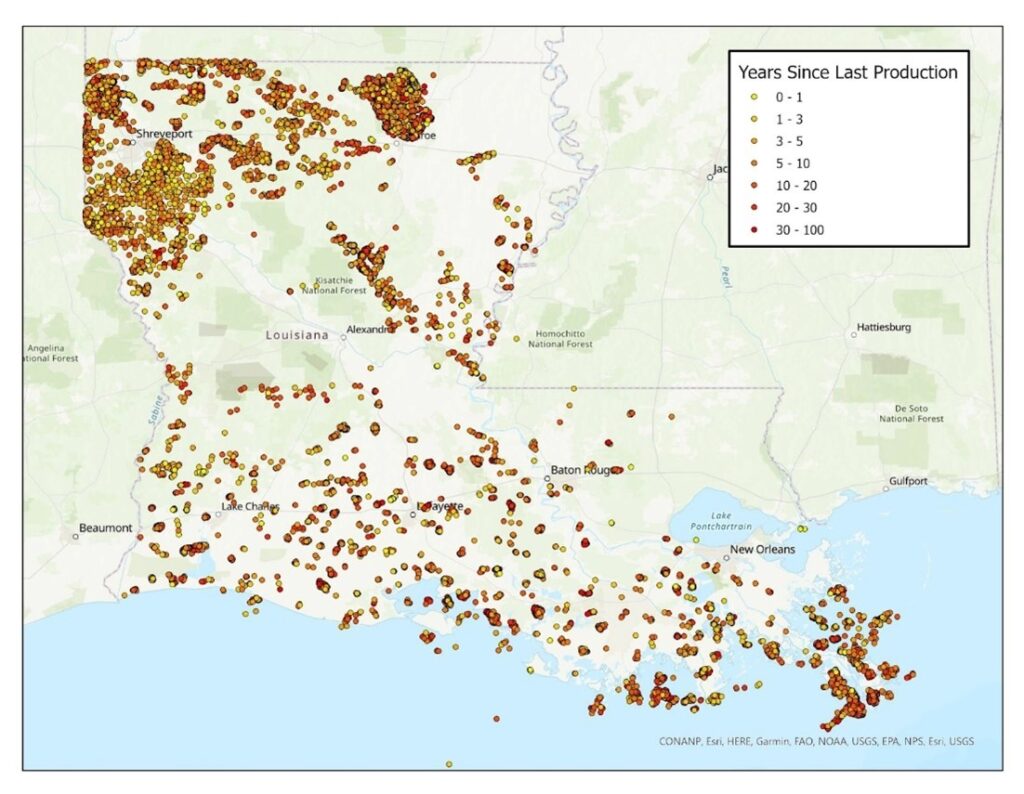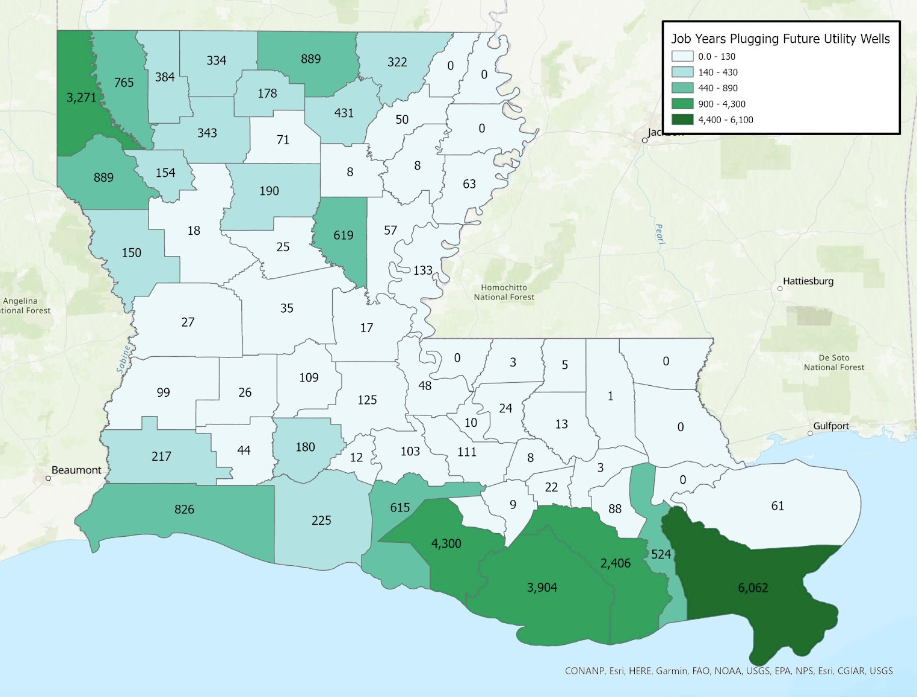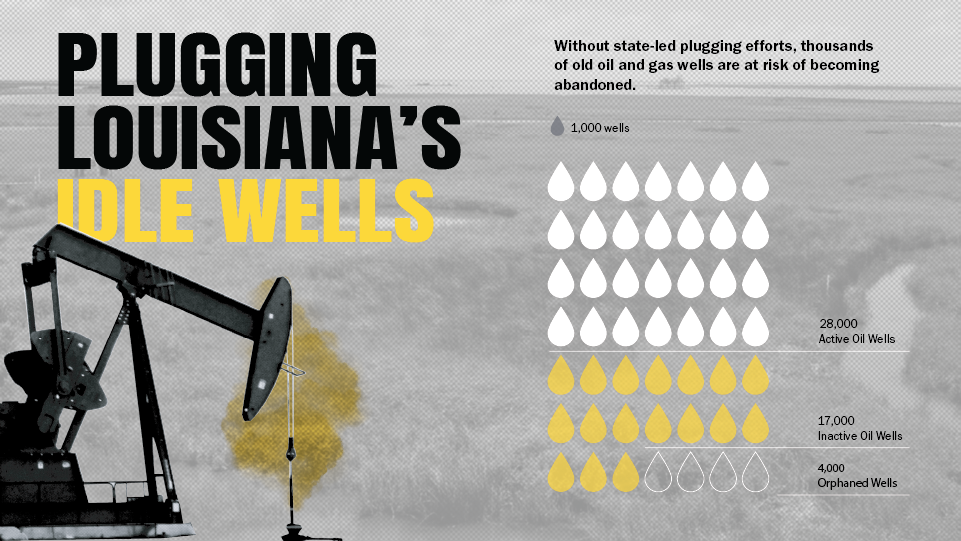New Louisiana rule will plug old oil wells, create jobs, safeguard environment
The Louisiana Department of Natural Resources has finalized new rules to help improve management of 17,000 non-productive oil and gas wells by encouraging their proper closure —an action that will create jobs, raise property values across the state and facilitate new clean energy projects.
Louisiana has a long history of oil and gas development, with 50,000 wells distributed across the state and along the coast. The state has a responsibility to ensure none of these wells become an environmental or economic liability.

About a third of these wells are non-producing but registered as having future utility, meaning the operator claims that they could be economically productive in the future. As a result, the operator isn’t required to plug the well. However, once wells are idled for more than three years, just one in five ever return to service. Often they will only see a tiny fraction of their former production levels.
Unplugged wells cause a host of economic, environmental and even public health and safety problems. They can leak methane and toxic air pollution, contaminate water, reduce property values and prevent other economic uses of the land.
Louisiana already has around 4,300 orphaned wells, a backlog that developed because of decades of underinvestment. The federal government is providing Louisiana with over $100 million dollars through 2030 to plug these wells. About 500 of them have been plugged this year alone, but the state has a long way to go. Around 17,000 wells across the state are in “future utility” status, half have not produced in five or more years, and tens of thousands of low-producing wells are likely to apply for the same status in the near future. Without better planning and policy, the list of wells that require taxpayer funding to plug could grow many times longer.

Louisiana’s new rule limits extensions of future utility status. This matters because the longer a well stays in that status, the more fees operators will have to pay. This provides an economic incentive for operators to plug their wells as opposed to keeping them in this idle status.
This important reform will not only help the hundreds of thousands of people who live near these wells but will create a wave of job creation in Louisiana’s oil patch. These will be well-paid positions, generating far more economic activity than any future production from these wells.
Louisiana’s efforts to plug old oil and gas wells could create thousands of new jobs, safeguard environment Share on XLouisiana’s new rule limits extensions of future utility status. This matters because the longer a well stays in that status, the more fees operators will have to pay. This provides an economic incentive for operators to plug their wells as opposed to keeping them in this idle status.
This important reform will not only help the hundreds of thousands of people who live near these wells but will create a wave of job creation in Louisiana’s oil patch. These will be well-paid positions, generating far more economic activity than any future production from these wells.

Louisiana is on a path toward responsible stewardship of its oil and gas resources, which includes ensuring that all oil and gas wells are plugged in a timely fashion, at the end of their useful lives, by their operators. Doing so not only protects the people living near these wells and reduces climate impact but also unleashes tremendous economic potential. This comes directly from well closure jobs and indirectly by facilitating new clean energy uses for some wells and well sites. This year’s reforms curbing long-term well idling are a key step toward Louisiana’s clean energy jobs future.











